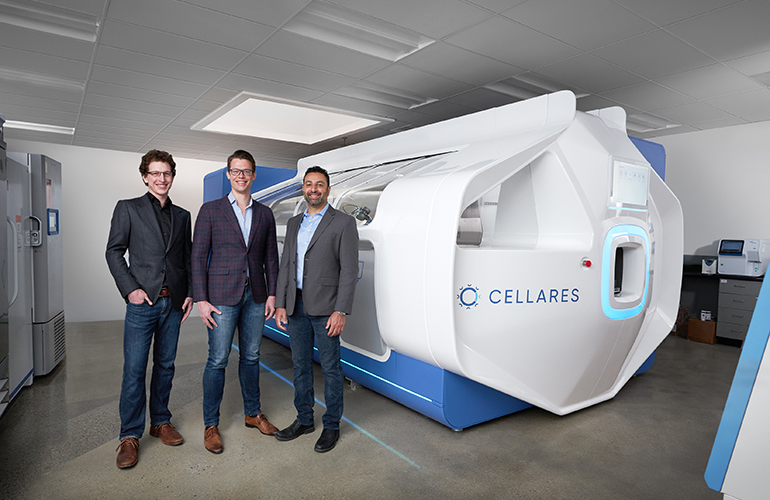
Cellares calls the Cell Shuttle a factory-in-a-box for cell therapy manufacturing.
Cellares Corp. (South San Francisco, Calif.), which is focused on accelerating cell therapy manufacturing, is teaming up with Poseida Therapeutics, Inc. as part of its Early Access Partnership Program (EAPP). Poseida is the third company to join the program after PACT Pharma and Fred Hutchinson Cancer Research Center.
“We’ve had relationships with several key stakeholders within Poseida for years,” said Fabian Gerlinghaus, co-founder and CEO of Cellares. “And Poseida shares our vision.”
As for Cellares’ vision, the company has developed a system it calls the Cell Shuttle, an automated, end-to-end platform it dubs a “cell therapy factory-in-a-box.”
While cell therapies have tremendous promise for treating aggressive blood cancers, solid tumors and rare genetic diseases, they can also be costly. While costs can vary widely, a 2019 study put the cost of CAR T-cell therapy at $1.5 million per treatment.
Traditionally, the process for “making these cell therapies is incredibly manual,” Gerlinghaus said. The method of making autologous cells for a single patient is no small task. “You have a team of scientists spending two to three weeks executing on the order of 50 manual processing steps, 80 hours of touch time, generating 500 pages of documentation for every single patient,” Gerlinghaus added. “The logistics of scaling this out to say 10,000 or 50,000 patients per year per drug are a nightmare.”

From left to right: Alex Pesch, Cellares co-founder and CTO; Fabian Gerlinghaus, co-founder and CEO; and Omar Kurdi, co-founder and president.
Put differently, cellular manufacturing using manual methods “does not scale, and it’s cost-prohibitive,” Gerlinghaus explained.
The company’s Cell Shuttle fully automates the entire process end to end. And because it is an end-to-end closed system, it reduces the risk of contamination and the risk of operator error and process failure.
Cellares estimates the system reduces the amount of human labor required for cell therapy manufacturing by roughly 70%.
Gerlinghaus also said the system offers “an order of magnitude improvement in throughput so that you can manufacture 10 autologous cell therapy doses for 10 different patients or 10 allogeneic batches simultaneously,” he said. “We can actually scale out from 10,000 to 50,000 patients per year per drug, depending on the particular indication.”
Cellares is confident its partners can help scale its technology. “We’re starting with indications and partners who are working on medications that have high patient populations,” Gerlinghaus said. “Poseida is really a champion and a true believer in the future of cell therapy manufacturing. So it was obvious to us that we wanted to partner with Poseida.”

Filed Under: Drug Discovery, Oncology





Tell Us What You Think!
You must be logged in to post a comment.